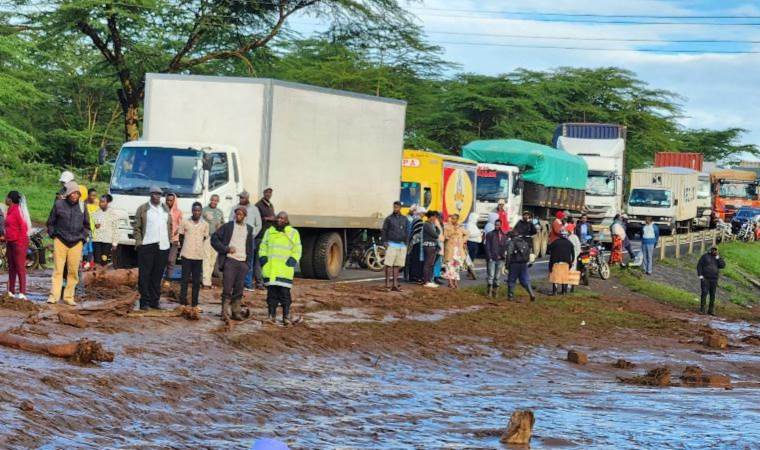Floods kill at least 42 in central Kenya; toll may rise after dam bursts
At least 42 people have been killed in floods in central Kenya's Mai Mahiu area and police warned the number of deaths could rise after a dam burst, Citizen Television reported on Monday.

Earlier on Monday, the Kenya Red Cross said it had taken several people to a health facility in Mai Mahiu due to flash flooding.
Pictures posted on the X accounts of Kenyan media, Kenya Red Cross and the highway authorities showed scenes of the aftermath of the flooding, with broken trees and at least one car stuck among logs and mud.
The latest deaths bring the toll from heavy rains and flooding since last month to more than 100. Government figures had showed 76 people had been killed and more than 131 thousand displaced as of Saturday.
Kenya Red Cross said on its X account its personnel had retrieved two bodies of people who were on a boat that capsized late on Sunday in Tana River, in eastern Kenya's Garissa County. Its personnel had rescued 23 people from the incident, while six were still missing, Kenya Red Cross said.
Dozens more have been killed and hundreds of thousands displaced by intense downpours in other East African countries, including Tanzania and Burundi.
Kenya's education ministry on Monday postponed the start of a new school term by one week.
"The devastating effects of the rains in some of the schools is so severe that it will be imprudent to risk the lives of learners and staff before watertight measures are put in place to ensure adequate safety of all affected school communities," the education ministry said in a statement.
The floods have destroyed roads and bridges across Kenya.
A road underpass at the international airport in the capital Nairobi was flooded, but flights were running as usual, the Kenya Airports Authority said on Sunday.
Hydroelectric dams were filled to capacity, which could lead to massive downstream overflow, a government spokesperson said.
East Africa was hit by record floods during the last rainy season in late 2023. Scientists say climate change is causing more intense and frequent extreme weather events.

